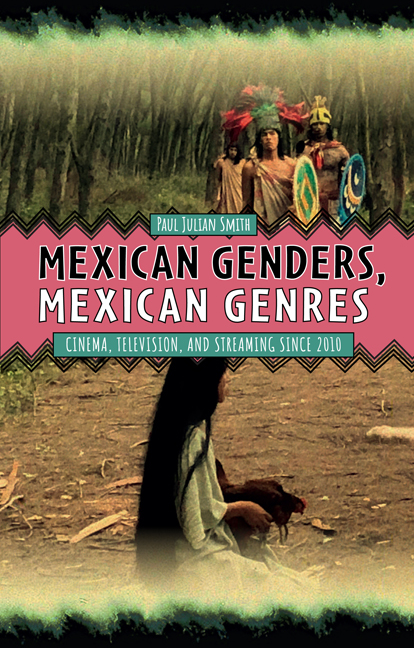5 - Gender, Genre, and Female Auteurship: Two Television Dramas from Giselle González
Published online by Cambridge University Press: 09 February 2021
Summary
REWRITING TV HISTORY
Cuna de lobos (“Cradle of Wolves”) was initially a classic telenovela from 1986 of 170 episodes. It boasts one of the most notorious and enduring female villains of Mexican television, the murderous “black widow” Catalina Creel (played by matronly local veteran María Rubio), who famously wears a sinister eye patch. In response to changes in the ecology and audience of Mexican broadcast television, Cuna de lobos was remade to great critical and popular acclaim by Televisa in 2019 as a “series,” a genre still relatively rare in Mexico. Now it consisted of just twenty-five episodes and starred sensuous Spanish film actress Paz Vega (Illus. 16). The production context for the remake was the still powerful but threatened free-to-air broadcaster's new slate of remade heritage titles, launched under the rubric “Fábrica de sueños, reescribiendo la historia” (“Dream Factory, Rewriting [Hi]Story”), of which Cuna de lobos was the second installment.
The shared premise, which goes unchanged from 1986 to 2019, is that the anti-heroine Catalina kills her wealthy husband in the very first episode, then embarks on a murder spree. She is the mother of one responsible son (Alejandro), who works hard in the family business, and the stepmother of another (José Carlos), an alcoholic gambler who lives abroad (the characters’ names are repeated in both versions). When the patriarch's will is found to stipulate that his estate goes to first of the sons to father a child and thus continue the family dynasty, Catalina encourages her son to impregnate Leonora, a young woman of modest means, in order that she can inherit the family firm.
The first half of this fifth chapter, the second on television, examines the remake's production context, calling attention to the key role played by the experienced executive producer Giselle González, a rare Mexican woman showrunner, comparable in status to Juan Osorio in the previous chapter. The chapter also analyzes the textual differences between the original telenovela and the remade series, especially with regard to the changing characterization of the female protagonist and the emergence of a major new gay male character.
- Type
- Chapter
- Information
- Mexican Genders, Mexican GenresCinema, Television, and Streaming Since 2010, pp. 111 - 138Publisher: Boydell & BrewerPrint publication year: 2021

